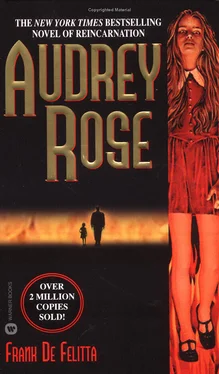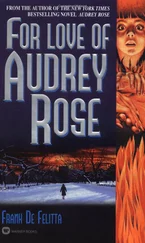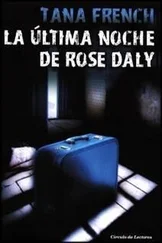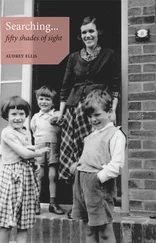“And yet how certainly you seemed to gravitate toward a degree of intellectual achievement that neither heredity nor environment can account for. Reincarnationists would say that your work in this life had been preordained by the mental demands of a former life.”
It was at this point in their conversation, Brice Mack recalled, that they had been interrupted by Hancock’s housekeeper, a sprightly lady who seemed every bit as old as Hancock. It was time for his pills, four of them, placed on a freshly pressed linen napkin on a pewter tray alongside a crystal carafe of water and a glass. After she replenished Mack’s coffee cup and left the room with the tray, Mack was reminded of another case that he thought might interest Hancock.
It concerned the six-year-old son of a friend of his, a man he had known since childhood. Neither his friend nor his friend’s wife possessed any particular artistic qualities to set them apart from the normal run of people, yet the boy, at age five, one day sat at a piano and began to play with a skill that was amazing, while he had never had a lesson.
“And what of Pascal,” trilled the old man in a burst of uncontained joy, “who, at the age of twelve, mastered the greater part of plane geometry without instruction, drawing on the floor of his room all the figures in the First Book of Euclid? And Mozart, executing a sonata on the pianoforte with four-year-old fingers and composing an opera at the age of eight? And Rembrandt, drawing with masterly power before he could read? Can you doubt that these ‘old souls’ came to earth with remarkable powers acquired in a former existence?”
No, thought Mack, sucking at the marrow of a spare rib, and neither will the jury. The old boy’s enthusiasm was infectious. He had a way with a word and a con man’s gift for making the outlandish seem perfectly reasonable. The jury would listen to this man and believe him.
Mack glanced at his wristwatch. Twelve forty-seven. At this moment the limousine transporting the sum and substance of his case and the salvation of his professional reputation would be speeding down the southbound lanes of the West Side Drive en route to Foley Square. Gnawing at the rib, which was cold and greasy, Brice Mack reasoned that traffic would not be a problem at this early hour and that even now they might have arrived at their destination.
Had it been possible for the youthful and hopeful attorney to have known that at this very moment, instead of proceeding on a southward course, the limousine, with the aid of a police car’s sirens to clear its path, was speeding eastward toward the emergency room of Roosevelt Hospital containing the catatonic and moaning form of a very sick and very old man, certainly the porker whose ribs he had so rudely desecrated would have had its revenge, for Brice Mack would surely have choked on the last mouthful.
Janice got the news at three fifteen.
The phone was ringing as she and Ivy entered the suite at the Candlemas. Handed a number of messages at the desk—all from Bill and all marked “Call back. Urgent! 555-1461”—they had hurried up to the room to comply, but Bill got to them first.
“Where the hell have you been?” he shouted in a wild and hysterical petulance that Janice suspected was as much the result of alcohol as anger.
“Out,” she replied, effecting a calm for Ivy’s sake.
“Out? Damn it, Janice! You were told to stick by the phone!” His voice blasted in the receiver, causing static.
Janice felt an impulse to hang up but restrained it. Instead, she asked, “What’s the matter?”
“What’s the matter?” he mimicked. “Where the hell’ve you been, anyway? It’s all over the radio and TV!”
Janice resisted asking, “What is,” forcing Bill to continue.
“The defense’s case has collapsed!” he shouted in a delirium of hostility and joy and proceeded to fill her in on the incredible happenings of the morning. And then—Bill’s strident voice rose to a new height of emotion as he delivered the real bombshell—James Beardsley Hancock’s sudden heart attack, the defense’s key witness out of the picture, perhaps for good.…
“Congestive heart failure,” Bill blurted out. “The hospital’s last report has him deep in coma and critical. Brice Mack asked the court for a continuance till tomorrow morning in order to realign his witnesses, and damn it, Velie had to accede to his request because you weren’t there and he was afraid Mack would want to bring you on next.…”
“Oh,” Janice said.
“Velie’s pissed, Janice, and so am I. We had them off-balance, on the run. This whole damn business could have been over by morning. Now the bastards have time to regroup and re-form their strategy.”
“I’m sorry,” Janice whispered.
“Damn it.” Bill’s voice lost its edge of shrillness. “We just can’t go about doing as we damn please, Janice. We’re not living a normal life. We’re in a battle.”
“I know.” Janice’s soft reply held just the right note of ambiguity, She could feel him weighing what she’d said. When he spoke next, he was decidedly calmer.
“How’s Ivy?”
“She’s here. Would you like to speak with her?”
“How is she, Janice?” Bill insisted.
“Okay … I think.”
“You think? What does that mean? Is she sick or isn’t she?”
“Her throat’s better, and the cough is gone.”
“Well then, bring her back to the city with you!”
Janice was taken unawares. “When?”
“Now. On the next train. It shouldn’t take you long to check out of that place.”
Janice hesitated. “She’d prefer to stay in school.”
“And I’d prefer to have her home, where we can keep an eye on her.”
Janice protested. “But we’ll be in court all day.”
“She’ll be closer to us here than up there. I’ll hire a sitter or a nurse, if you want. Pack her up and take her along, okay?”
A vein was throbbing in Janice’s temple. Ivy must not return to the city. She mustn’t give in to him on this point, and yet to raise the question of why she mustn’t would only rekindle his anger and bring on a new wave of scorn and contempt for fears he considered not only foolish but traitorous.
“Janice?” Bill prodded after a too-lengthy pause. “I’ll be expecting both of you down tonight, okay?”
Janice found herself stepping back warily from the receiver, not knowing how to answer him. Then, unexpectedly, surprising herself, she thrust the phone at Ivy and told her, “Here, darling, Daddy wants to say hello.”
The happy and assured smile on her daughter’s face brought a flush of guilt to Janice’s cheeks. It was difficult to stand there quietly and to smile as Ivy chattered innocently and with total unawareness that she had been used as the stopgap in an irreconcilable situation.
“… but I can’t come home now,” Ivy beseeched. “Tomorrow’s the crowning, and I just can’t miss it. We all worked so hard on Sylvester. Please, Daddy, please let me stay!”
Her pathetic pleas to remain gradually found a receptive ear, and soon Janice saw the clouds of gloom disperse and sunshine return to her face.
“Oh, thank you, Daddy,” she cried. “And please don’t worry, I’m really feeling much better. I haven’t coughed once since we got to the room.” Ivy’s eyes flicked toward Janice. “Yes, she’s here, I’ll put her on. And, Daddy, I love you—”
Janice’s grip tightened on the phone, and hearing Bill’s breathing on the other end, she cleared her throat.
“Thanks,” he said curtly. “Thanks a lot.” His comment required no response, and she made none. “What’s this crowning all about?”
“It’s an every-year thing they do at the school, with the snowman.”
Читать дальше












